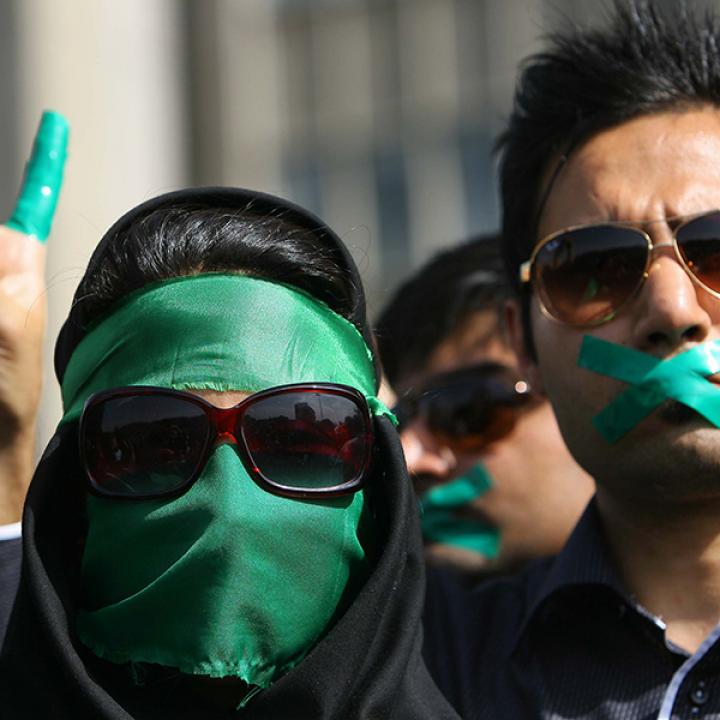
On Saudi Arabia and Iran: Tread Lightly

However hard it seems for Iran to fight against the United States’ “soft war,” nothing appears easier and less costly than mobilizing Iranians worldwide against Saudi Arabia or poisoning their consciencewith anti-Arab sentiments.
October 4, 2016
However hard it seems for Iran to fight against the United States’ “soft war,” nothing appears easier and less costly than mobilizing Iranians worldwide against Saudi Arabia or poisoning their conscience with anti-Arab sentiments.
The Islamic Republic was always criticized by traditional clergy for its pan-Islamic tendencies, overlooking Shiite identity, and prioritizing its political agenda over the sectarian cause. On the other hand, millions of Iranians are unhappy with Shiite-Islamic orientations of Iran’s regional and foreign policies. Engaging in a public “wild word war” against Iran is nothing but to play a game whose rules are set by the Islamic Republic: both groups of critics rally behind Iran and find not only Iran’s anti-Saudi policies but also the regime’s military intervention in various parts of the region thoroughly legitimate and necessary.
Along with the complex socio-cultural fabric of Iranian people, there all kinds of religious, nationalist, leftist, and rightist motivations to “hate” Saudi Arabia, believing in Iran’s absolute right to confront Arab ambitions and aspirations in the region. This is why no one should be shocked to see the silent face of Iranian democratic opposition or clergy vis-a-vis the human catastrophe in Syria, for which the Iranian regime is partially responsible. One should not look for the origin of anti-Arab sentiments in ancient time: the collective memory of Iranians is full of vivid images of the eight-year Iran-Iraq war in which most Arab governments left Iran alone and supported its enemy.
When the Saudi senior mufti calls Iranians – indiscriminately - “non-Muslims,” Iranians hail Ayatollah Khamenei’s stance when he calls Saudi government “a damned bad tree,” an allusion to a verse from the Quran (Ibrahim:26): “the parable of a bad word is a bad tree: uprooted from the face of earth, it has no stability”.
Relying on the MEK for regime change is like using a hammer to deconstruct a sophisticated electronic machine. If regime change is assumed a plausible, cost-effective, and balanced option, deep knowledge about the nature of the regime is the first step. But in the last four decades, Saudis have proven their lack of knowledge about Iranian perception of Saudi-Arabs, the nature of the regime they desire to change, and the regime’s various opposition groups, as well as Iranian public perception about MEK.
Despite being the most organized opposition group, MEK is the most notorious organization which finds the least support among Iranians inside and outside the country. There are many reasons for this: its structure is more similar to a cult than a political entity; it is more Islamist than Islamic Republic (one only has to look at its dress code for female members); it is less democratic than the regime it dreams to change; and most importantly, its alliance with the enemy at war, Saddam Hussein, fighting with him against Iran during the war. There is no better self-defeating strategy than supporting MEK publicly or associating with it in confronting Iran. This proves Iranian government claims: our enemies are not only the government’s enemies but the people’s enemies. For the overwhelming majority of Iranians, both Saddam Hussein and the MEK’s anti-Iran role in the war were charged by Saudi money.
Ignoring such perceptions, engaging in inflammatory rhetoric against Iran or Iranians, avoiding accountability for incidents like Mena and fueling the fire of sectarian tensions could only empower the radical hardcore of the Islamic Republic, legitimizing its destabilizing, aggressive regional policies and restoring its ties with potential future or former domestic critics.
No one is able change the regime if he overlooks his own image in people's minds. Saudis have the right to be worried about Iran’s regional agenda and aspirations. But this is not enough. Acquiring deep knowledge about the government, the people, and the opposition is vital. Instead of self-defeating policies like relying on the MEK, it would be wiser if Saudis start thinking about designing effective cutting-edge frameworks and apparatus for public diplomacy toward Iran.


